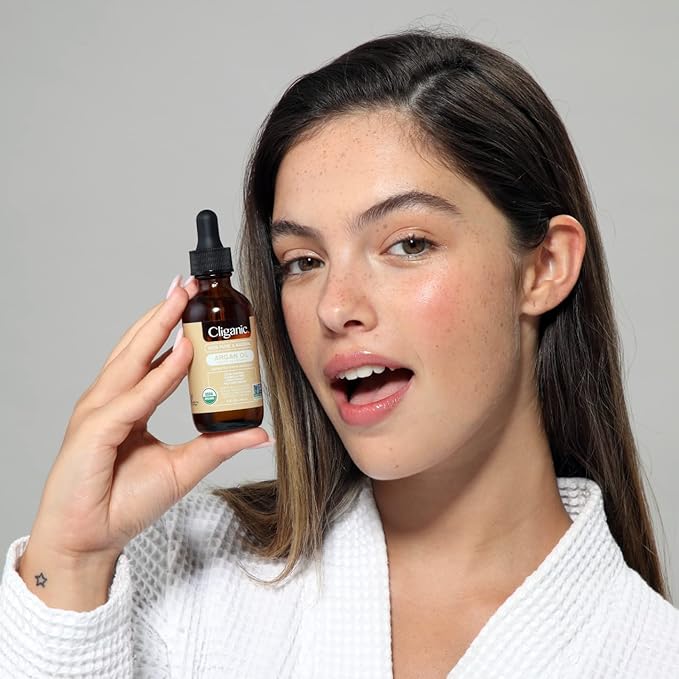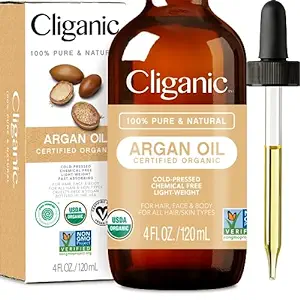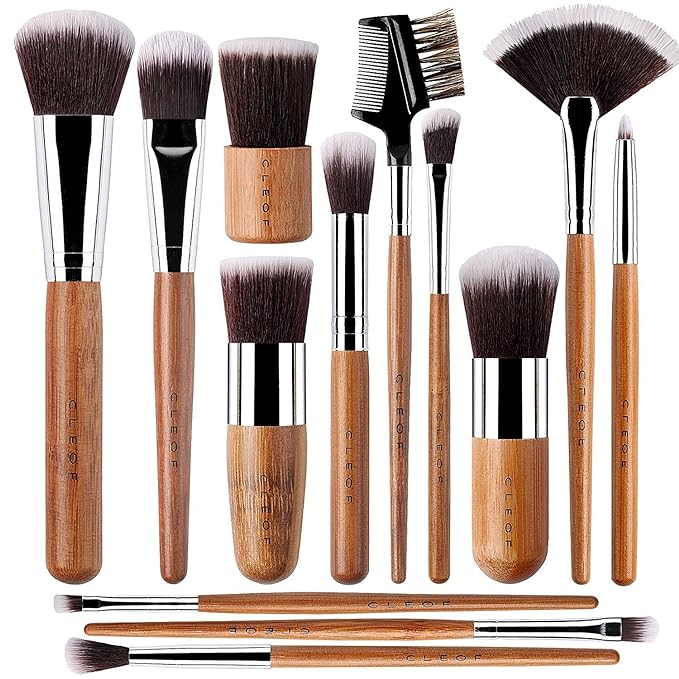Organic Argan Oil: The All-Natural Solution for Hair and Skin
Organic argan oil, often referred to as “liquid gold,” is a powerful, natural oil extracted from the kernels of the argan tree (Argania spinosa) native to Morocco. Renowned for its rich nutrient profile, which includes essential fatty acids, antioxidants, and vitamin E, organic argan oil has become a sought-after ingredient in the beauty industry. This article explores the myriad benefits of organic argan oil for hair and skin, providing an in-depth understanding of its uses, applications, and the science behind its effectiveness.
1. Introduction to Organic Argan Oil
Organic argan oil is a versatile and natural beauty product that has gained popularity worldwide for its remarkable benefits for both hair and skin. Extracted from the kernels of the argan tree, this oil is packed with essential nutrients that nourish and rejuvenate. Whether you’re dealing with dry skin, or brittle hair, or simply looking to enhance your natural beauty, organic argan oil offers a powerful solution.
2. The History and Origin of Argan Oil
Argan oil has been a staple in Moroccan culture for centuries. The argan tree, endemic to Morocco, produces nuts that are harvested and processed to extract the oil. Traditionally, Berber women have used argan oil for its cosmetic and medicinal properties, making it an integral part of their daily beauty regimen. The traditional method of extraction involves drying the argan fruit, cracking the nuts, and grinding the kernels to produce the oil, ensuring its purity and potency.
3. Nutrient Profile of Argan Oil
Organic argan oil boasts an impressive nutrient profile that makes it highly beneficial for hair and skin health. Key components include:
- Vitamin E: is a powerful antioxidant that protects the skin and hair from damage and helps to maintain moisture levels.
- Essential Fatty Acids: Including omega-6 and omega-9, which help to nourish and repair the skin and hair.
- Polyphenols: are antioxidants that protect against environmental damage and promote overall skin health.
- Squalene: is a natural emollient that hydrates and softens the skin.
4. Benefits of Organic Argan Oil for Hair
A. Promotes Hair Growth
Organic argan oil is rich in antioxidants and essential fatty acids that stimulate hair follicles and promote healthy hair growth. Regular application of argan oil can help to strengthen hair roots, reduce hair fall, and enhance the growth of thicker, fuller hair.
B. Conditions and Moisturizes
Argan oil is an excellent natural conditioner. Its high content of vitamin E and fatty acids penetrates deep into the hair shaft, providing intense moisture and nourishment. This helps to repair damaged hair, leaving it soft, smooth, and manageable.
C. Reduces Frizz and Adds Shine
One of the standout benefits of argan oil is its ability to tame frizz and add a natural shine to the hair. By smoothing the hair cuticle and locking in moisture, argan oil reduces frizz and enhances the hair’s natural luster, giving it a healthy, glossy appearance.
D. Treats Scalp Conditions
Argan oil has anti-inflammatory properties that can help to soothe and treat various scalp conditions, including dandruff and psoriasis. Its moisturizing effect alleviates dryness and itchiness, promoting a healthier scalp environment.
E. Protects Against Heat Damage
Applying argan oil to your hair before using heat styling tools can provide a protective barrier against heat damage. The oil’s nourishing properties help to prevent breakage and split ends, ensuring that your hair remains healthy even with regular heat styling.
5. How to Use Argan Oil for Hair
- As a Leave-In Conditioner: Apply a few drops of argan oil to damp hair, focusing on the ends and avoiding the roots. Style as usual.
- Overnight Treatment: Massage argan oil into your scalp and hair before bed. Cover your hair with a shower cap and wash it out in the morning for deep conditioning.
- Heat Protectant: Apply a small amount of argan oil to your hair before using heat styling tools to protect against damage.
- Frizz Control: Rub a few drops of argan oil between your palms and smooth it over dry hair to tame frizz and add shine.
6. Benefits of Organic Argan Oil for Skin
A. Moisturizes and Hydrates
Argan oil is an excellent natural moisturizer that hydrates and nourishes the skin. Its high vitamin E and fatty acid content help to lock in moisture, keeping the skin soft and supple.
B. Anti-Aging Properties
The antioxidants in argan oil, including vitamin E and polyphenols, help to reduce the appearance of fine lines and wrinkles. Regular use of argan oil can improve skin elasticity and firmness, giving the skin a more youthful appearance.
C. Treats Acne and Blemishes
Argan oil has anti-inflammatory and antimicrobial properties that can help to reduce acne and prevent future breakouts. Its non-comedogenic nature means it won’t clog pores, making it suitable for acne-prone skin.
D. Heals and Reduces Scars
The high vitamin E content in argan oil promotes the healing of scars and reduces their appearance. Whether from acne, surgery, or injury, argan oil can help to improve the texture and tone of scarred skin.
E. Soothes Inflammation and Redness
Argan oil’s anti-inflammatory properties make it effective in soothing irritated and inflamed skin. It can help to calm conditions such as eczema and rosacea, reducing redness and discomfort.
7. How to Use Argan Oil for Skin
- Moisturizer: Apply a few drops of argan oil to your face and neck after cleansing and before applying sunscreen or makeup.
- Night Serum: Use argan oil as a night serum by applying it to your face before bed. Its nourishing properties will work overnight to hydrate and rejuvenate your skin.
- Spot Treatment: Apply a small amount of argan oil to acne spots or scars to promote healing and reduce their appearance.
- Body Lotion: Mix argan oil with your favorite body lotion or use it alone to moisturize and soften your skin.
8. The Science Behind Argan Oil’s Efficacy
Numerous studies have highlighted the benefits of argan oil for hair and skin health. The high levels of antioxidants, such as vitamin E and polyphenols, help to protect against oxidative stress and environmental damage. Essential fatty acids, including oleic and linoleic acids, play a crucial role in maintaining the skin’s barrier function and promoting hair growth. The oil’s anti-inflammatory properties are beneficial in treating various skin conditions, while its moisturizing effects make it an excellent emollient.
9. Choosing the Right Organic Argan Oil
When selecting organic argan oil, look for products that are:
- Certified Organic: Ensure the oil is certified organic to guarantee its purity and absence of harmful chemicals.
- Cold-Pressed: Cold-pressed extraction preserves the oil’s nutrients and ensures its efficacy.
- Pure: Choose pure argan oil without any additives or preservatives.
- Reputable Brand: Opt for reputable brands that provide transparent information about their sourcing and production processes.
10. DIY Argan Oil Recipes
A. Hair Masks
Moisturizing Argan Oil Hair Mask:
- 2 tablespoons of organic argan oil
- 1 tablespoon of honey
- 1 egg yolk
Mix the ingredients and apply the mask to damp hair. Leave it on for 30 minutes before rinsing thoroughly and shampooing.
B. Face Serums
Anti-Aging Argan Oil Serum:
- 2 tablespoons of organic argan oil
- 1 tablespoon of rosehip oil
- 5 drops of frankincense essential oil
Combine the oils in a dropper bottle and apply a few drops to your face each night.
C. Body Lotions
Nourishing Argan Oil Body Lotion:
- 1/2 cup of organic argan oil
- 1/4 cup of shea butter
- 1/4 cup of coconut oil
- 10 drops of lavender essential oil
Melt the shea butter and coconut oil together. Once cooled, mix in the argan oil and lavender essential oil. Store in a jar and use as needed.
D. Lip Balms
Hydrating Argan Oil Lip Balm:
- 2 tablespoons of organic argan oil
- 1 tablespoon of beeswax
- 1 tablespoon of cocoa butter
Melt the beeswax and cocoa butter together. Once melted, stir in the argan oil. Pour into lip balm containers and let cool.
11. FAQs about Organic Argan Oil
Q1: What is organic argan oil?
Organic argan oil is a natural oil extracted from the kernels of the argan tree, native to Morocco. It is renowned for its benefits for hair and skin due to its rich nutrient profile.
Q2: Can argan oil help with hair growth?
A: Yes, argan oil can promote hair growth by stimulating hair follicles and providing essential nutrients that strengthen hair roots.
Q3: How often should I use argan oil on my hair?
A: For best results, use argan oil on your hair 2-3 times a week. You can adjust the frequency based on your hair type and needs.
Q4: Is argan oil suitable for all skin types?
A: Yes, argan oil is suitable for all skin types, including oily, dry, and sensitive skin. Its non-comedogenic properties make it ideal for acne-prone skin.
Q5: Can I use argan oil as a facial moisturizer?
A: Yes, argan oil is an excellent facial moisturizer. Apply a few drops to your face after cleansing for hydration and nourishment.
Q6: Does argan oil help with acne scars?
A: Yes, the high vitamin E content in argan oil helps to heal and reduce the appearance of acne scars.
Q7: How do I store organic argan oil?
A: Store organic argan oil in a cool, dark place to maintain its potency. Avoid exposing it to direct sunlight and heat.
Q8: Can I use argan oil on my body?
A: Yes, argan oil can be used on the body to moisturize and soften the skin. It can be applied directly or mixed with body lotion.
Q9: What are the benefits of using argan oil on the scalp?
Argan oil helps to soothe and treat scalp conditions, such as dandruff and psoriasis, by providing moisture and reducing inflammation.
Q10: How long does it take to see results with argan oil?
Results can vary, but many people notice improvements in their hair and skin within a few weeks of regular use.
Q11: Is argan oil safe to use during pregnancy?
A: Yes, argan oil is generally considered safe to use during pregnancy. However, it is always best to consult with a healthcare provider before using any new product.
Q12: Can argan oil protect my hair from heat damage?
A: Yes, applying argan oil to your hair before using heat styling tools can provide a protective barrier and reduce heat damage.
Q13: Is there a difference between culinary and cosmetic argan oil?
A: Yes, culinary argan oil is roasted and used for cooking, while cosmetic argan oil is cold-pressed and used for hair and skin care.
Q14: Can I use argan oil on my eyelashes and eyebrows?
A: Yes, applying a small amount of argan oil to your eyelashes and eyebrows can help to condition and strengthen them.
Q15: Does argan oil have a strong scent?
A: Pure argan oil has a mild, nutty scent. If the oil has a strong or unpleasant odor, it may be of low quality or rancid.
Q16: Can argan oil help with stretch marks?
A: Yes, the vitamin E and fatty acids in argan oil can help improve skin elasticity and reduce the appearance of stretch marks.
Q17: Is argan oil effective for treating eczema?
A: Yes, argan oil’s anti-inflammatory properties can help soothe and alleviate the symptoms of eczema.
Q18: How can I incorporate argan oil into my skincare routine?
A: You can use argan oil as a moisturizer, night serum, or spot treatment. Apply it after cleansing and before sunscreen or makeup.
Q19: Can argan oil be used on sensitive skin?
A: Yes, argan oil is gentle and suitable for sensitive skin. Its soothing properties help to calm irritation and redness.
Q20: What should I look for when buying organic argan oil?
A: When buying organic argan oil, look for certified organic, cold-pressed, pure oil from reputable brands. Avoid products with additives or preservatives.
In conclusion, organic argan oil is a versatile and powerful natural solution for both hair and skincare. Its rich nutrient profile and myriad benefits make it an essential addition to any beauty regimen. Whether you’re looking to promote hair growth, reduce frizz, moisturize your skin, or combat signs of aging, argan oil offers an all-natural, effective solution. With proper use and consistent application, you can enjoy the transformative effects of this “liquid gold.”










One Comment